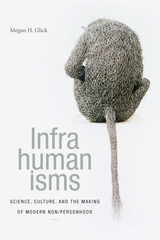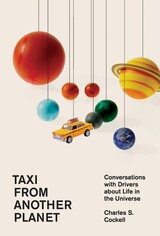
Advocating nuclear war, attempting communication with dolphins, and taking an interest in the paranormal and UFOs, there is perhaps no greater (or stranger) cautionary tale for the Left than that of Posadism. Named after the Argentine Trotskyist J. Posadas, the movement’s journey through the fractious and sectarian world of mid-20th century revolutionary socialism was unique. This book is a “dumpster dive” into the weird and wonderful world of the Posadists.
Although at times significant, Posadas' movement was ultimately a failure. As it disintegrated, it increasingly grew to resemble a bizarre cult, detached from the working class it sought to liberate. The renewed interest in Posadism today, especially for its more outlandish fixations, speaks to both a cynicism towards the past and nostalgia for the earnest belief that a better world is possible. Chapters include:
*Revolutionary Youth or Patriotic Youth
*The Death Throes of Capitalism
*The Origins of Posadism
*Flying Saucers, the Process of Matter and Energy, Science, the Revolutionary and Working-Class Stuggle, and the Socialist Future of Mankind
*What Exists Cannot be True
*Why Don’t Extraterrestrials Make Public Contact
*UFOs to the People
In the Introduction, A.M. Gittlitz writes, “Insurrection or first contact could come any day, Marxists and ufologists both tell us, but both are far more likely if we desire them, embracing a sentiment enigmatically expressed in a meme come before its time, a poster on the wall of rouge FBI agent Fox Mulder in the ‘90s sci-fi noir The X-Files: hovering alongside a granny image of a comically unconvincingly flying saucer and the words I WANT TO BELIEVE".
Drawing on considerable archival research, and numerous interviews with ex- and current Posadists, I Want to Believe tells the fascinating story of this most unusual socialist movement and considers why it continues to capture the imaginations of leftists today.


In Interspecies Communication, music scholar Gavin Steingo examines significant cases of attempted communication beyond the human—cases in which the dualistic relationship of human to non-human is dramatically challenged. From singing whales to Sun Ra to searching for alien life, Steingo charts the many ways we have attempted to think about, and indeed to reach, beings that are very unlike ourselves.
Steingo focuses on the second half of the twentieth century, when scientists developed new ways of listening to oceans and cosmic space—two realms previously inaccessible to the senses and to empirical investigation. As quintessential frontiers of the postwar period, the outer space of the cosmos and the inner space of oceans were conceptualized as parallel realities, laid bare by newly technologized “ears.” Deeply engaging, Interspecies Communication explores our attempts to cross the border between the human and non-human, to connect with non-humans in the depths of the oceans, the far reaches of the universe, or right under our own noses.

Insightful, good-humored essays on the possibilities of alien life and the uses of space exploration, based on an astrobiologist’s everyday conversations with his fellow humans—taxi drivers, to be precise.
If you’ve ever sat in the back seat of a taxi, you know that cabbies like to talk. Sports or politics, your job or theirs, taxi drivers are fine conversationalists on just about any topic. And when the passenger is astrobiologist Charles Cockell, that topic is usually space and what, if anything, lives out there.
Inspired by conversations with drivers all over the world, Taxi from Another Planet tackles the questions that everyday people have about the cosmos and our place in it. Will we understand aliens? What if there isn’t life out in the universe? Is Mars our Plan B? And why is the government spending tax dollars on space programs anyway? Each essay in this genial collection takes questions like these as a starting point on the way to a range of insightful, even poignant, observations. Cockell delves into debates over the inevitability of life and looks to both human history and scientific knowledge to consider what first contact will be like and what we can expect from spacefaring societies. He also offers a forceful argument for the sympathies between space exploration and environmentalism.
A shrewd and entertaining foray into the most fundamental mysteries, Taxi from Another Planet brings together the wisdom of scientific experts and their fellow citizens of Earth, the better to understand how life might unfold elsewhere.
READERS
Browse our collection.
PUBLISHERS
See BiblioVault's publisher services.
STUDENT SERVICES
Files for college accessibility offices.
UChicago Accessibility Resources
home | accessibility | search | about | contact us
BiblioVault ® 2001 - 2024
The University of Chicago Press









